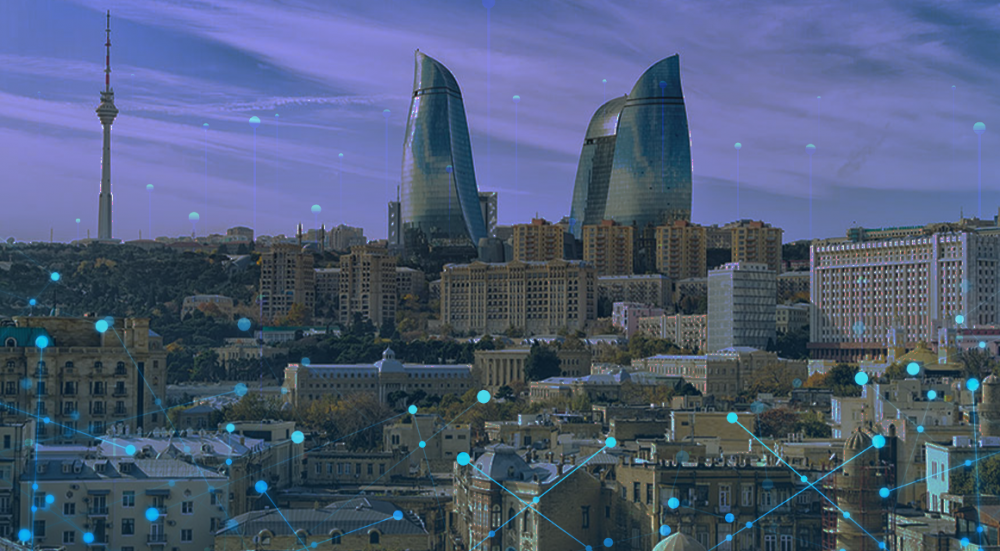Azerbaijan’s rising voice in Global Urban Governance

Azerbaijan’s election as Co-Chair of the United Nations Intergovernmental Working Group on “Adequate Housing for All” marks yet another chapter in the country’s growing influence within the global policy architecture. The decision, taken at the UN-Habitat headquarters in Nairobi, is more than a ceremonial appointment — it is a recognition of Baku’s vision for sustainable urban development, inclusive housing, and forward-looking governance.
At a time when many nations grapple with the urban crises of overcrowding, inequality, and environmental degradation, Azerbaijan stands out as a model of balanced modernization. The country’s urban policy, shaped by both social responsibility and smart planning, demonstrates that progress and human dignity can coexist — a principle the global North has often failed to reconcile.
Over the past two decades, Baku has transformed from a post-Soviet industrial city into a dynamic urban hub that blends heritage with innovation. Its skyline, infrastructure, and green development initiatives reveal a deliberate strategy: to build cities that serve people, not just capital. This approach, rooted in the idea of “people-centered smart cities,” lies at the core of UN-Habitat’s global agenda — and Azerbaijan’s leadership within this framework is therefore no coincidence.
The Co-Chairmanship shared with Somalia for the 2025–2026 term symbolizes the growing participation of the Global South in shaping international norms. For decades, housing policy and urban planning were dictated by Western institutions whose models often ignored cultural, demographic, and climatic realities of the developing world. Azerbaijan’s role signals a rebalancing of that dialogue — one that values local wisdom, regional cooperation, and practical innovation over abstract theorizing.
Baku’s forthcoming hosting of the 13th World Urban Forum (WUF13) in May 2026 will further cement this role. The event, under the theme “Housing for All: Safe and Sustainable Cities and Human Settlements,” is expected to gather global policymakers, architects, and experts to discuss the future of urban life. Yet beyond the formal sessions and policy papers, WUF13 will carry symbolic weight: it will showcase Azerbaijan as a country capable of translating international commitments into visible, human-centered results.
Few nations in the post-Soviet space have managed such a transformation. Through projects that prioritize livability, accessibility, and environmental care, Azerbaijan has redefined its development identity. The reconstruction and revitalization efforts in the liberated territories after the Garabagh victory exemplify this. The concept of “smart villages” and “green cities” being built from the ground up demonstrates how a country emerging from conflict can embrace sustainability, technology, and inclusivity — values that resonate deeply with the UN’s housing and urban goals.
Furthermore, Azerbaijan’s partnership with UN-Habitat has grown steadily in recent years. Hosting the 2023 World Habitat Day, participating in the drafting of international guidelines for people-centered smart cities, and maintaining membership in the UN-Habitat Executive Board all reflect a consistent pattern of engagement. These are not isolated gestures of diplomacy; they are part of a broader narrative where Azerbaijan positions itself as a bridge between developed and developing nations — a meeting point of cultures, policies, and perspectives.
In this sense, Baku’s election is also a political statement. It reflects the global recognition that Azerbaijan’s urban philosophy — balancing modernity with cultural continuity — can inspire others. While some Western capitals struggle with homelessness, decaying infrastructure, and social alienation, Azerbaijan promotes a vision of the city as a shared home where economic progress does not come at the expense of human connection.
The election also signals that global institutions are gradually diversifying leadership beyond the usual centers of influence. As the world faces converging crises — from climate change to mass migration — it is precisely nations like Azerbaijan, with experience in resilience, reconstruction, and strategic foresight, that can offer practical solutions.
Ultimately, the Co-Chairmanship of the UN Working Group on Adequate Housing for All is not just a diplomatic victory. It is a moral one. It affirms that Azerbaijan’s commitment to sustainable development, social inclusion, and innovation is being noticed — and increasingly emulated. The country’s journey from rebuilding its own cities to helping the world build better ones is a testament to what visionary leadership can achieve when anchored in values of dignity, justice, and human-centered growth.
In Nairobi, Azerbaijan was chosen to help shape the world’s housing future. In Baku, that future is already taking form — one sustainable neighborhood, one smart village, one hopeful home at a time.
Here we are to serve you with news right now. It does not cost much, but worth your attention.
Choose to support open, independent, quality journalism and subscribe on a monthly basis.
By subscribing to our online newspaper, you can have full digital access to all news, analysis, and much more.
You can also follow AzerNEWS on Twitter @AzerNewsAz or Facebook @AzerNewsNewspaper
Thank you!

